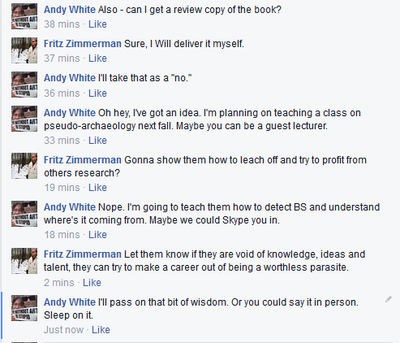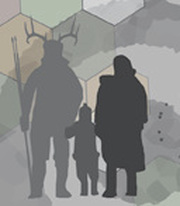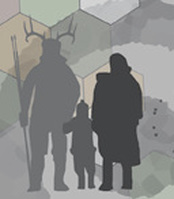A common refrain among those claiming to be interested in discovering the "forbidden truths" about our prehistory is that mainstream archaeologists and academics are actively involved in a conspiracy to suppress information, hide evidence, censor ideas, and generally keep the world from knowing what really happened in the past. The charge that mainstream archaeologists are hiding evidence to protect the status quo is not just incidental to theorists on the fringe: it is a central plank used over and over again to explain the absence of positive evidence for their claims. The absence of positive material evidence for a claim, in fact, is sometimes used to support the contention that a conspiracy to hide the evidence exists, and that therefore the original claim must be true. It's really bizarre.
The charge that ideas that conflict with "mainstream" interpretations of the past are actively censored is also central to the claims of fringe theorists. Nevermind that Ancient Aliens is in its eighth season, Jim Vieria got an entire television series after TEDx took down a video of his talk, and fringe writers are selling books out the wazoo, the cry of "censorship" is common. I think fringe theorists like to cry foul for several overlapping reasons: (1) it helps them promote the idea that the mainstream is involved in a conspiracy to keep us from knowing "the truth;" (2) it helps them explain the lack of positive evidence for the ideas they are promoting; and (3) it helps them promote themselves as mavericks who are bucking the system, fighting the power, crusading for justice, or whatever else.
The claims of censorship and suppression of evidence and ideas are as bogus as they are boring at this point. I suggest we switch it up a little bit.
Here's my idea: why not bring the fringe into my classroom?
 An online exchange with Fritz Zimmerman that gave me the idea for inviting fringe theorists into my classroom.
An online exchange with Fritz Zimmerman that gave me the idea for inviting fringe theorists into my classroom. Is your specialty ancient aliens? Giants? Atlantis? Elongated skulls? OOPARTS? Mu? Phoenicians in the New World? Would you like to talk to a group of perhaps 40-50 college students and share your ideas and explain the logic and evidence behind them? Would you be willing to take questions from those same students, knowing that they will have previously made themselves familiar with your arguments and will be asking you questions? Would you be willing to have your engagement with my class videotaped and put online?
Science is built on the premise that good ideas can withstand scrutiny and challenges, while incorrect ideas can be shown to be incorrect. Science is based on evidence. Pseudoscience, conversely, is belief masquerading as science. Scientists are not afraid of scrutiny: proving things wrong is what we do. Pseudoscientists hide from scrutiny, however, because being proven wrong is not good for business.
If I was an honest fringe theorist and I had an idea which I was confident I could present and defend to an audience in an open forum, I would jump at the chance to do so (just because an idea is not accepted by the mainstream doesn't mean it's wrong, of course). Here, after all, would be a chance to leap over that wall and talk to people in the very settings from which I'm being excluded. But if I was a huckster marketing ideas that I knew were baloney . . . perhaps in that case I would be somewhat reluctant to expose those ideas to a critique. My impression is that many fringe theorists really like the protected spaces of radio shows, "interviews," television appearances, books, and "conferences" that insulate their ideas from the fundamental aspect of science (falsification) that makes scientific inquiry a cumulative, self-correcting endeavor.
So, while still tentative at this point, here's my offer:
- You'll get 15-20 minutes to talk to my class (either in person or via Skype) about whatever part of your work you choose;
- You'll let me know ahead of time (i.e., before the semester begins) what aspect of your work you'll be presenting;
- You'll take at least 15-20 minutes of questions from students in my class, who will have had time to become familiar with your ideas and evidence prior to your presentation;
- You'll agree that your presentation and the question/answer session will be recorded and made available to the public (via YouTube or something similar);
- There won't be any financial compensation involved.
I'm not yet sure how many of these kinds of interactions I will be able to fit in during the semester, but if any of you out there want to take me up on this I'd love to hear from you. Leave a comment below, or email me at [email protected].
Update (2/15/2016): Jim Vieira is in.
Update (6/13/2016): I set up a Go Fund Me campaign to raise travel money to bring Wolter to Columbia.


 RSS Feed
RSS Feed
